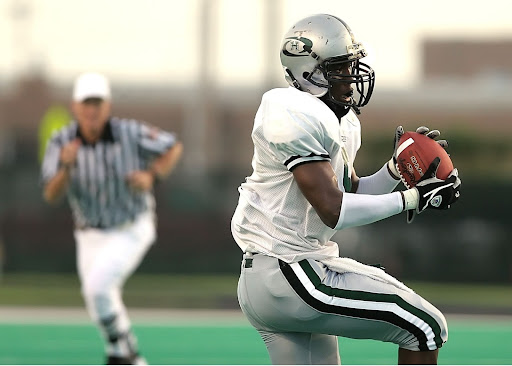American football is a demanding sport. Athletes need to have high levels of energy and endurance to perform at their best, and while fitness is essential, a good diet and taking the right supplements play a huge role in providing the nutrients and energy required to train.
An American Footballer’s Diet Plan
Consistency is key. Football players must follow a healthy, balanced diet plan that hits all the macros. A balanced diet includes:
Protein
Protein is essential to an athlete’s diet as it builds and repairs muscles. The amount of protein a football player will need depends on their body weight; this is 2.5g for every 1kg. Ideally, at least half of their protein should come from animal products.
Protein sources like chicken, beef, tuna, and eggs are high in BCAAs, three of the nine amino acids the body can’t produce that has to be consumed in food. Athletes need BCAAs as they boost muscle growth, reduce muscle pain, and improve endurance when an athlete trains. Football players should read more about BCAA to understand why these amino acids must be included in their diets.
Carbs
Carbohydrates provide athletes with the energy they need to perform at their best. Carbs provide glucose that is used as energy. Glucose that is not immediately converted is stored as glycogen. Football players deplete the stored glycogen quickly, hence the need for a diet high in carbs.
The diet must contain a wide range of complex carbs like whole-grain bread, rice, pasta, and potatoes.
Simple or refined carbs like cereal, white bread, and cookies should only make up a small part of the diet as they are high in sugar. However, they can provide an energy boost after an intense training session.
Fruits and Vegetables
Fruits and vegetables must be incorporated into every meal and used as snacks between meals. Even though some fruits are high in sugar, it is in its unrefined form. The benefits of the vitamins, minerals, antioxidants, and fiber outweigh this sugar content. Besides the health benefits, vitamins and minerals also reduce inflammation and aid recovery.
Fats
Football players must include healthy fats in their diet. Healthy fats are a source of energy and help the body absorb nutrients from other food sources. Good fat sources include nuts and seeds, fatty fish, dairy, and olive or avocado oil.
Supplements
Even with the best meal plan, getting all the required nutrients an athlete needs is difficult. It is necessary for American football players to take supplements so that they get the nutrients that are missing from their food. Supplements athletes should take include:
Protein
As previously mentioned, protein is essential, and often athletes don’t get enough from their food. Including a protein shake in your diet will go a long way in increasing your protein intake.
Green Supplements
It is challenging to eat enough vegetables to get the required amount of vitamins and minerals. Taking a green supplement allows you to gain the benefits of eating a range of vegetables with just one pill or shake. This provides energy, aids in building muscles, and prevents cramping during play.
Probiotic
Probiotics are seriously underrated. While it is important to consume a balanced, nutritious diet, it is wasted if the food is not properly digested. A probiotic will help your body break down and digest food. It also boosts the immune system and helps to maintain a healthy gut.

